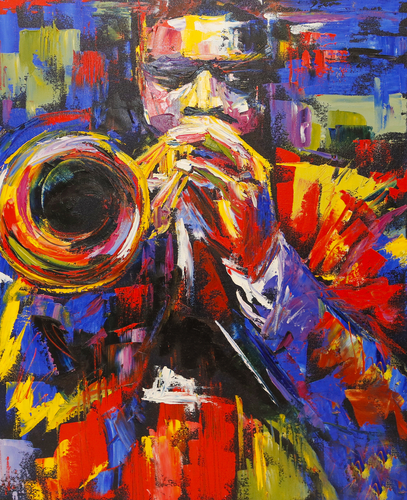By York Notes Series Consultant, Mike Gould
In an ideal world, Year 9 represents the seamless transition between the ‘middle years’ of 7 and 8 and the rigours and demands of GCSE English Literature and Language. But it has its challenges: how much should it be about revisiting skills built over the previous years, and how much about expanding the boundaries? Should it – or part of it – tackle GCSE components, getting them ‘out of the way’ before Year 10 begins? Year 9, then, is about choices.
For my own part, I’d like to press the case for Year 9 to be used to widen perspectives. Here are five ideas, some of which, no doubt, already feature in your schemes of work:
1. Once upon a time there was an element to GCSE English Language related to media texts: is it time to revive such study?
In a world in which culture is politicised and the personal is increasingly made public, why not take a serious, project-style look at selected media texts around a topic? For example, exploring the representation of new technologies, such as electric cars. These might include the sort of non-fiction articles which crop up in GCSE English Language papers, but matched not so much with 19th century equivalent articles on the advent of the omnibus, but with contemporary channels – a Huffington Post web page, deconstructing a meme, investigating a brand’s television ads, and so on. We live in a world of sound and images – let’s help students navigate through them.
media texts around a topic? For example, exploring the representation of new technologies, such as electric cars. These might include the sort of non-fiction articles which crop up in GCSE English Language papers, but matched not so much with 19th century equivalent articles on the advent of the omnibus, but with contemporary channels – a Huffington Post web page, deconstructing a meme, investigating a brand’s television ads, and so on. We live in a world of sound and images – let’s help students navigate through them.
2. Speaking up for oracy: how can you place speaking and listening at the heart of the curriculum?
It’s never too late to focus on oracy. Create a list of core attributes each student should have acquired by the end of Year 9 in the areas of: individual speech and presentation, group discussion, and drama and role-play (Drama teachers may take exception to these being linked together in which case these categories can be separated). For each of your half-termly modules – or however you divide up the year – write in specific opportunities for each of these skills to be developed, and, if necessary, assessed. In addition, offer the chance to investigate spoken language practice as the ‘old’ GCSE used to, exploring accent and dialect, voice and register. Validate the skills or such research with your own Gold, Silver and Bronze awards to raise the profile of oracy.
3. Exploring new voices and new texts: is Year 9 the best time to take inclusivity that bit further?
Experiencing a rich range of texts and voices is vital across all ages and phases, but in Year 9 can the increasing emotional development of students lend itself to tackling hard truths and engaging with challenging materials? If students are better able to write at length by now, you could set them more extended pieces of writing exploring texts which they are unlikely to encounter at GCSE, such as Lemn Sissay’s My Name is Why, Dean Atta’s poem-novel, The Black Flamingo or the My Story series which includes Slave Girl by Patricia C. McKissack. Or set them a task to find their own texts and choose their own titles or themes to discuss. Researching movements such as the Harlem Renaissance could be one way of extending the range of voices they encounter. Check out my recent blog on this very aspect.
students lend itself to tackling hard truths and engaging with challenging materials? If students are better able to write at length by now, you could set them more extended pieces of writing exploring texts which they are unlikely to encounter at GCSE, such as Lemn Sissay’s My Name is Why, Dean Atta’s poem-novel, The Black Flamingo or the My Story series which includes Slave Girl by Patricia C. McKissack. Or set them a task to find their own texts and choose their own titles or themes to discuss. Researching movements such as the Harlem Renaissance could be one way of extending the range of voices they encounter. Check out my recent blog on this very aspect.
4. Everyone loves a cross-curricular project, don’t they?
Teachers have a huge amount to do to adequately address the content and skills for their own subject, especially when trying to make up for lost time since 2020, but could Year 9 finally allow for cross-fertilisation between subject areas, each helping the other? Internationally, subjects such as Global Perspectives are becoming increasingly popular, so why not get students to research issues with global significance but which impact on their own lives, whether that is digital security, medical ethics or transport of the future. Evaluating source material for its reliability and validity and deconstructing a range of perspectives are both important skills for developing the critical mind, while enhancing scientific (or other) subject knowledge.
5. Creative writing is cool – why not ride that wave?
Creative writing, journaling, making podcast stories – the desire to describe and imagine has never been so strong. An ongoing project for students could be to write a novel (it needn’t be a long one, and could be based on the 5000 word/three chapter sample an agent or publisher might ask for – with introductory pitch, synopsis and so on). Giving students the licence to follow their own stories, develop their voice and write at length, may be the final gift you can provide before the rigours of GCSEs kick in (and in any case it won’t do any harm in building confidence and resilience for the exam essays to come).
In the end, trying to fit in everything you want into your schemes of work for Key Stage 3 is like trying to cram suitcases into the boot of a tiny car: it requires deft planning, and ruthless excision of the unnecessary. My plea is that you reconsider what you put in, especially to the corner reserved for Year 9. Perhaps the very things you thought were peripheral to students’ needs turn out to be exactly what they need.
For more support on the 9–1 English Language and Literature GCSEs check out our Revision and Exam Practice guides.
Mike Gould is a former Head of English and Drama and author of over 150 books and other educational resources. He has worked as a lecturer in English and education at Brighton University.